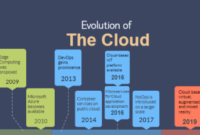Embracing Financial Innovation
Daftar Isi Artikel
Innovation in financial management can drive significant improvements in efficiency, accuracy, and strategic decision-making. Businesses should consider the following innovations:
- Fintech Integration: Integrate fintech solutions to streamline financial operations, such as payments, accounting, and compliance. Fintech tools can offer advanced features like real-time analytics, automated reconciliation, and enhanced security.
- Artificial Intelligence (AI): Utilize AI for predictive analytics, risk assessment, and personalized financial advice. AI algorithms can analyze large datasets to identify trends, forecast financial outcomes, and optimize investment strategies.
- Machine Learning (ML): Implement machine learning models to improve financial forecasting and anomaly detection. ML algorithms can learn from historical data to make more accurate predictions and detect unusual patterns that may indicate financial issues.
- Blockchain Technology: Explore blockchain applications for secure and transparent transactions. Blockchain can enhance the integrity of financial records, streamline payment processes, and reduce fraud risk through its decentralized ledger system.
Leveraging Data for Strategic Decisions
Data-driven decision-making is crucial for optimizing financial strategies. Key practices for leveraging data include:
- Big Data Analytics: Use big data analytics to gain insights from vast amounts of structured and unstructured data. Analyzing big data can reveal market trends, customer preferences, and operational inefficiencies.
- Customer Insights: Analyze customer data to understand purchasing behavior, preferences, and lifetime value. This information can inform pricing strategies, product development, and targeted marketing efforts.
- Operational Metrics: Monitor operational metrics such as inventory turnover, sales conversion rates, and supply chain performance. Data-driven insights can help optimize operations, reduce costs, and improve profitability.
- Benchmarking: Compare financial performance against industry benchmarks and competitors. Benchmarking helps identify areas for improvement and set realistic financial goals.
Cultivating a Forward-Thinking Financial Culture
Building Financial Literacy Across the Organization
Promoting financial literacy at all levels of the organization enhances overall financial management and decision-making. Key strategies include:
- Employee Training: Offer financial education programs and workshops for employees. Training on budgeting, financial planning, and understanding financial statements can empower staff to make informed decisions.
- Cross-Functional Collaboration: Encourage collaboration between finance and other departments. Cross-functional teams can provide diverse perspectives and enhance the accuracy of financial forecasts and strategies.
- Leadership Development: Invest in leadership development programs focused on financial management. Effective leaders with strong financial acumen can drive strategic initiatives and ensure sound financial practices.
Encouraging Financial Innovation and Creativity
Fostering a culture of innovation in financial management can lead to new solutions and efficiencies. Consider the following approaches:
- Idea Generation: Create platforms or forums for employees to propose innovative financial solutions and improvements. Encourage creative thinking and reward successful ideas that enhance financial performance.
- Pilot Programs: Implement pilot programs to test new financial strategies, technologies, or processes. Evaluate the results and scale successful initiatives to drive broader organizational change.
- Continuous Learning: Promote a culture of continuous learning and adaptation. Stay informed about emerging financial trends, technologies, and best practices to remain competitive and agile.
Addressing Financial Risks and Challenges
Identifying and Mitigating Financial Risks
Effective risk management is essential for protecting business assets and ensuring financial stability. Key risk management practices include:
- Risk Assessment: Conduct regular risk assessments to identify potential financial risks, such as market volatility, credit risk, and operational challenges. Use risk assessments to develop mitigation strategies.
- Diversification: Diversify investments and revenue streams to reduce exposure to specific risks. Diversification can help protect against market fluctuations and economic downturns.
- Insurance: Obtain appropriate insurance coverage to protect against financial losses from unexpected events, such as natural disasters, cyber-attacks, or legal disputes.
- Crisis Management Plans: Develop and maintain crisis management plans to respond to financial emergencies. Ensure that plans are regularly updated and tested to address evolving risks.
Managing Cash Flow Effectively
Maintaining healthy cash flow is crucial for day-to-day operations and long-term success. Key practices for managing cash flow include:
- Cash Flow Forecasting: Create cash flow forecasts to project future cash inflows and outflows. Accurate forecasting helps manage liquidity and plan for financial needs.
- Accounts Receivable Management: Implement effective accounts receivable management practices to ensure timely collection of payments. Monitor overdue accounts and follow up on outstanding invoices.
- Expense Control: Monitor and control expenses to prevent overspending and optimize cash flow. Regularly review expenses and identify opportunities for cost reduction.
- Working Capital Management: Optimize working capital by balancing current assets and liabilities. Efficient working capital management improves liquidity and supports business operations.
Future-Proofing Financial Strategies
Planning for Technological Advancements
Preparing for future technological advancements is crucial for maintaining a competitive edge. Key considerations include:
- Technology Roadmap: Develop a technology roadmap that outlines planned upgrades, integrations, and investments. Ensure alignment with overall business strategy and financial goals.
- Digital Transformation: Embrace digital transformation initiatives to modernize financial processes and systems. Digital tools can enhance efficiency, accuracy, and data-driven decision-making.
- Innovation Partnerships: Form partnerships with technology providers and innovators to stay ahead of industry trends. Collaborating with tech experts can provide access to cutting-edge solutions and insights.
Adapting to Regulatory Changes
Staying compliant with evolving regulations is essential for avoiding legal issues and maintaining financial integrity. Key practices include:
- Regulatory Monitoring: Continuously monitor changes in financial regulations and standards. Stay informed about updates to accounting principles, tax laws, and compliance requirements.
- Compliance Training: Provide ongoing compliance training for employees to ensure adherence to regulations and policies. Regular training helps mitigate risks and promote a culture of compliance.
- Legal Counsel: Engage legal counsel to review and interpret regulatory changes. Legal experts can provide guidance on compliance strategies and help address complex regulatory issues.
Conclusion
Effective financial management is a dynamic and ongoing process that requires strategic planning, innovation, and adaptability. By embracing technological advancements, leveraging data, and fostering a culture of financial literacy and creativity, businesses can enhance their financial strategies and achieve sustainable success.
Addressing financial risks, managing cash flow, and future-proofing strategies are critical for navigating uncertainties and seizing new opportunities. As the business environment continues to evolve, staying informed, agile, and proactive will be key to thriving in a competitive landscape.
Mastering the intricacies of financial management not only involves balancing the books but also strategically positioning the organization for long-term growth and resilience. By prioritizing effective financial practices and embracing innovation, businesses can build a strong foundation for future success and achieve enduring prosperity.




